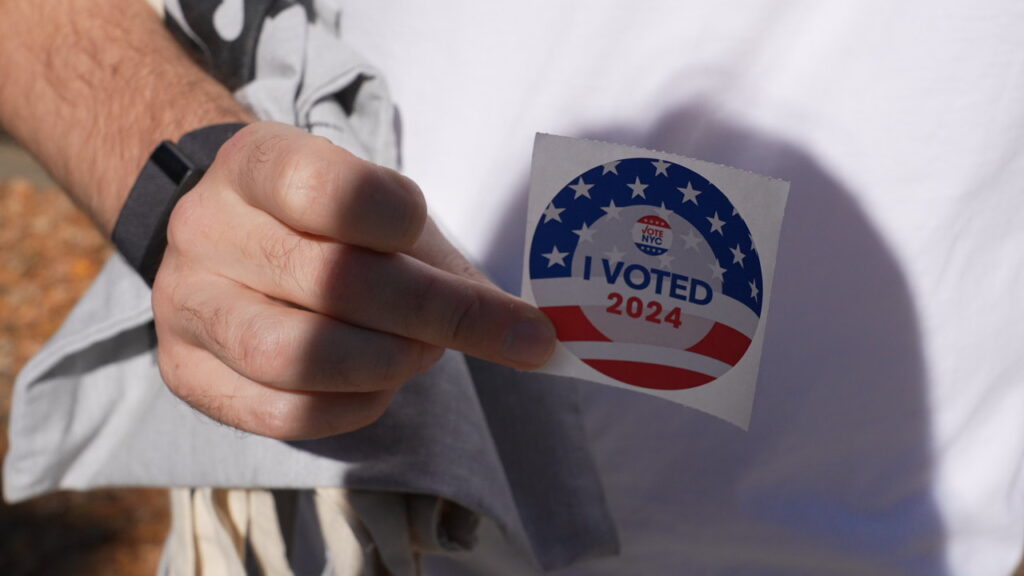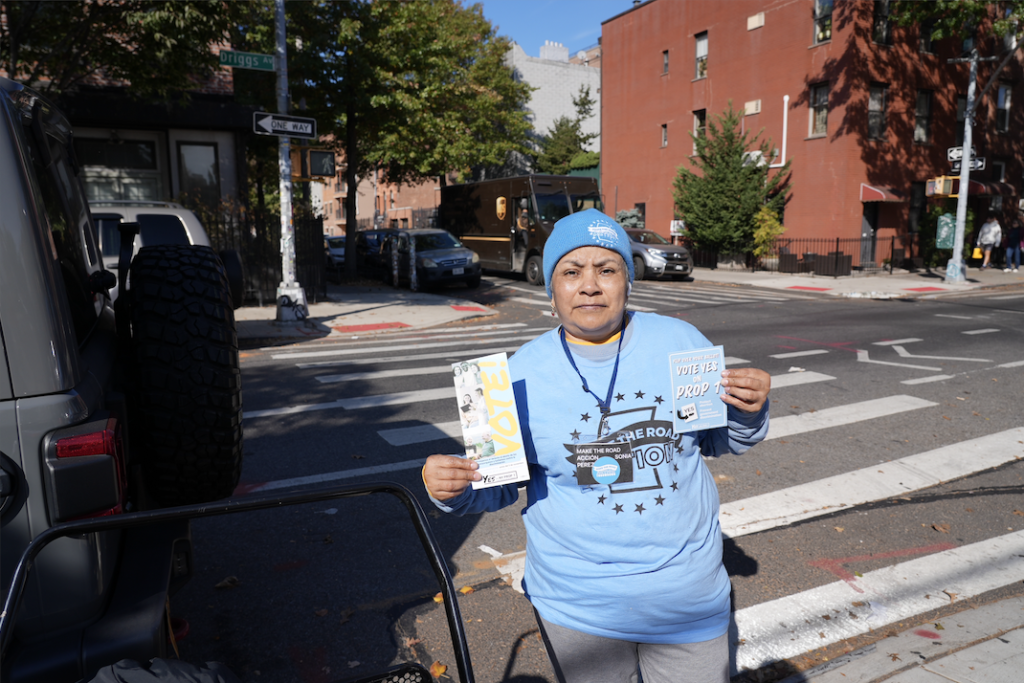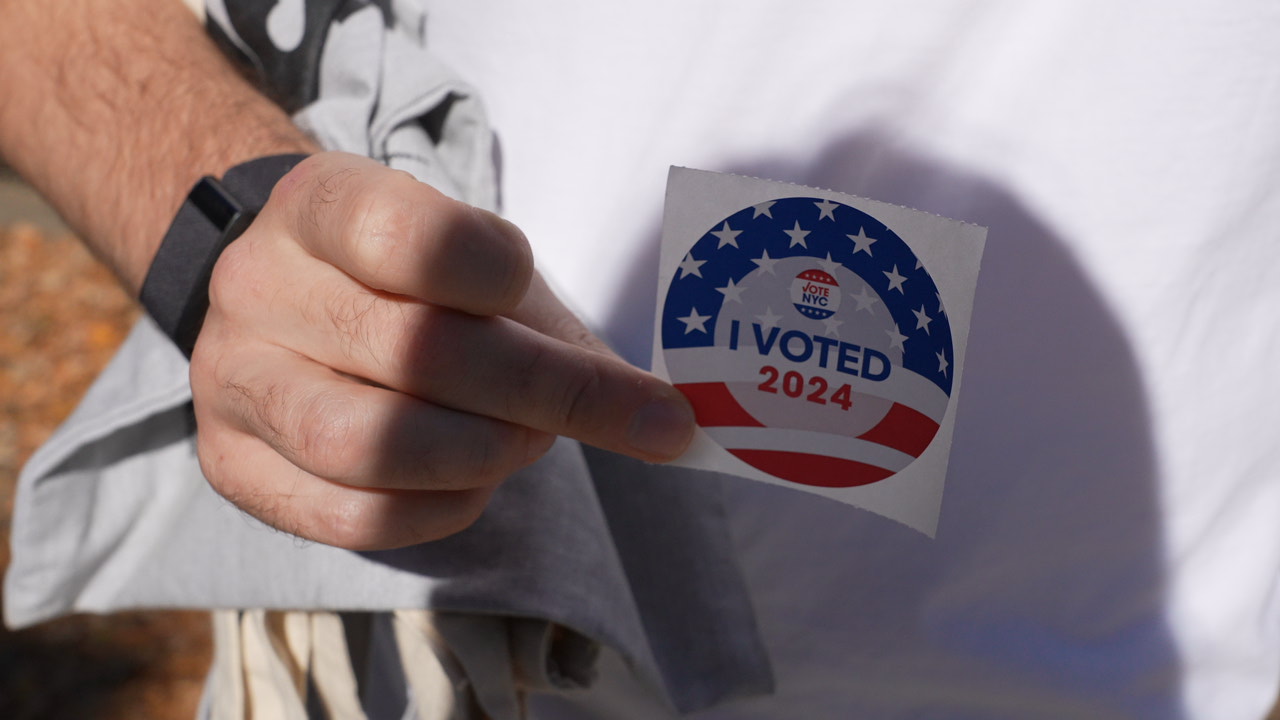
The 2024 election marks a turning point in New York’s political landscape. This year, Donald Trump secured 44.2% of New York’s votes, outperforming all Republican candidates since 1992. Although New York has long been a Democratic stronghold, it’s showing signs of a conservative shift.
“I just think the migrant crisis needs to be addressed. We have too many unfiltered people coming in, some with criminal histories,” said James Hedges, a restaurant cook in Williamsburg, Brooklyn. Hedges cast his first-ever vote for Trump, drawn by campaign promises of mass deportations and an expanded U.S.-Mexico border wall.
In a district with more than 23.8% Hispanic population, Williamsburg residents hold varied perspectives on immigration.
Sonia Perez, a Latina volunteer with Make the Road New York—a grassroots group advocating for immigrant rights—arrived early on Election Day near a Williamsburg polling site. Stationed with a trolley full of flyers and posters, she encouraged voters to support Proposition 1, which enshrines women’s abortion rights in the state constitution. The act passed later that night.

“I think Trump doesn’t realize the contributions immigrants make,” said Perez, who, despite living in the U.S. for 20 years, still doesn’t have the right to vote. “I really hope Kamala will win because she’s going to help more immigrants.”
Yet Latino support for Democratic presidential candidates has dropped significantly nationwide this year. According to exit polls from the Americas Society/Council of the Americas, Kamala Harris won 58% of the Latino vote, while Trump captured 42%—a 14-point margin, far narrower than Biden’s 34-point lead over Trump in 2020.
The economy remains a key factor in this shift. According to an NBC News pre-election poll, many Latinos view Trump as stronger on economic issues than Harris, a sentiment shared by the general public. Trump’s promises, including tax cuts and eliminating federal taxes on tips and overtime pay, appeal to many working-class voters.
However, for young Democratic voters like Joel Cruz, a second-generation immigrant, supporting someone who has targeted their own community feels unimaginable. “I am a Latino, and I admit there is a lot of self-hatred and colorism within our own community. A lot of Latinos are not properly informed,” Cruz said. “On a psychological level, there has always been a disconnect between people who hold opposing ideologies in my community.”
This sentiment resonates with other ethnic groups, including Asians, who make up more than 6% of Williamsburg’s population. Linda Nagaoka, a Japanese artist in the district who voted against Trump in 2020, described her vote for Harris this year as an act of “stopping dictatorship.”
“I care more about immigrant rights than the economy,” Nagaoka said. “For me, it’s a human rights issue.”








